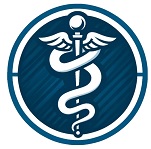
People experiencing gastrointestinal (GI) bleeding require immediate medical care. Symptoms may include hematemesis, melena or blood in their stool or vomit.
Download this GI Bleed Nursing Care Plan template to confidently track and manage the treatment journey of your patients. The chart included will allow for efficient tracking.
1. Assessment
Assessment is the foundation of patient-centric care. It involves gathering both objective and subjective data about an individual, such as vital signs and information from family and friends about his/her condition. Objective data includes physical characteristics like body temperature and pulse rate as well as objective measurements such as blood pressure or hemoglobin levels; subjectivie data addresses intangible elements like feelings, perceptions or beliefs regarding health-related concerns and life events.
Once the nurse has collected all relevant data, they can use it to create a nursing diagnosis and determine what interventions to implement and goals that need to be met. Once done so, all the goals can be compiled in one nursing care plan that can then be stored securely on an HIPAA-compliant online platform such as Carepatrons for easy access by all healthcare professionals on a patient’s treatment team.
2. Interventions
An individual with gastrointestinal (GI) bleeding may present with abdominal pain, fatigue and weakness. Their symptoms could range from mild to life-threatening – vomiting blood or passing black, tarry stools (melena). Nurses evaluate the cause and provide immediate and comprehensive nursing care to their patient.
Provide a thorough medical history including any previous episodes of GI bleeding. Inquire about medications used such as anticoagulants, aspirin, and NSAIDs; bleeding typically results from peptic ulcers, gastritis, inflammatory bowel disease or diverticulosis.
Monitor vital signs regularly, noting changes to blood pressure, heart rate and oxygen saturation levels. Raise the head of bed to support venous return and enhance tissue perfusion. Administer blood products (packed red blood cells or fresh frozen plasma) as directed to restore lost blood volume.
Assure that the patient is compatible for blood transfusions. Keep an eye out for symptoms like pain, weakness and increased hemoglobin levels diminishing over time. Finally, prepare them for endoscopic procedures or surgery if directed.
3. Reassessment
Gastrointestinal bleeding refers to any loss of blood from the digestive tract affecting esophagus, stomach and small and large intestines. As a nurse you must assess and manage these patients in order to prevent complications such as hypovolemia (low fluid volume).
Monitor client symptoms and physical examination for signs of bleeding, such as hematemesis (vomiting blood) or melena (dark, tarry stools). Administer isotonic fluids, hemoglobin or other fluids as needed to restore or expand intravascular volume.
Utilizing a GI Bleed Nursing Care Plan Template is an essential way to ensure all goals of care are achieved efficiently and confidently for efficient and confident patient outcomes. These templates can easily be shared among healthcare providers and the patient through Carepatron’s central workspace, making it simple to monitor, share, and evaluate outcomes. Carepatron is HIPAA compliant and secure access can be granted to care plans at all times for all involved parties – so get your copy today!
4. Teaching
Nurses caring for GI bleeding patients must remain alert for signs of continued bloody emesis or mallory weiss tears (esophageal hemorrhages) to provide timely administration of hemostatic agents as needed. Furthermore, two IVs should be available for fluid and antibiotic administration as well as any blood transfusions needed by their patient.
Inform the patient to avoid over-the-counter medications that increase their risk for bleeding. This includes drugs containing aspirin or nonsteroidal anti-inflammatory drugs (ibuprofen or naproxen), as these reduce normal platelet aggregation while disrupting gastric mucosal integrity by inhibiting cyclooxygenase enzyme, increasing their chances of gastrointestinal bleeding.
Additionally, educate the patient on avoiding herbal remedies that could increase the risk for bleeding such as Dong Quai, Feverfew and Ginger as these herbs interfere with platelet action and inhibit clotting, increasing gastrointestinal bleeding risks. Offering regular educational resources and counseling sessions to your patient will enable them to recognize potential threats and enhance overall quality of life.
